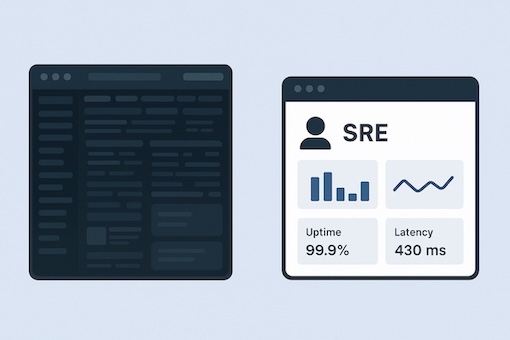Latest blog posts
DevOps resources tips and best practices
Emily Freeman, best-selling author and former Head of Community at AWS, shares her experiences with developer experience, from measuring it to enacting it — and doing both successfully.

The 10X engineer. Master of the Universe. Builder of worlds. Myth.
The idea of the 10x engineer has lived throughout Silicon Valley for years. Companies have been trying to find and hire these titans of industry for years. But, they have been looking for these developers in the wrong place.
Instead of spending time trying to find these engineers, companies should have been focused on how they 10X their engineering org by improving the developer experience. 10X your DevEx and you’ll start to see more gains than if you hired one of these all-powerful engineers.
So, why should you care about DevEx, how can you measure it, and how can you start to improve it?
Emily Freeman, best-selling author and former Head of Community at AWS, shares her experiences with developer experience, from measuring it to enacting it — and doing both successfully.
While it is not the only positive aspect of creating a developer experience initiative, increased productivity is certainly a facet that should not be overlooked.
By reducing the amount of decision-making by developers and speeding up and simplifying onboarding processes, work will move significantly quicker.
“I feel like so much of this toil that we've begun to remove from developer's plates is what we would call the undifferentiated heavy lifting. It is not only about the decisions but actually the work of it,” Emily says. “The greater the developer experience is the faster your developer teams can operate.”
When developer teams are catalyzed, business outcomes are reached quicker and more efficiently. Conversely, as Emily says, nothing slows business achievements down more than an irritated, pedantic developer.
Developers command a certain level of compensation — and for a good reason. However, compensation alone is not the roadmap for a positive developer experience.
Like many other professions, developers want to feel that they have a meaningful contribution. Most importantly, they need to feel as if their work has meaning.
Emily believes ensuring that developers experience joy should be a top priority.
“When we’re joyful, we're more creative. We're more relaxed. We work more efficiently and better together when we are less stressed. We need to feel like we are actually contributing to something and having joy throughout our workday,” Emily says. “The more that your product can inject that joy into a developer's life, the better that experience will be, and ultimately, the better loyalty you will achieve as people use those products.”
When persuading an audience in any scenario, you must start by analyzing what the group is concerned with and what they want to achieve. Approaching technical teams with this idea would look different than approaching business-minded, non-technical teams.
When approaching teams that may be more closely watching the business’s bottom line, it would be best to address the productivity aspect of the developer experience. By highlighting the increased rate of performance, fewer required meetings, better decision-making, and more, business-minded teams will see the amount of money saved (and the amount of additional profits).
On the other hand, speaking to a team that is closer in proximity to the keyboard, they may better understand the day-to-day toils of the developer team. Speaking to these teams on a more personal level may be the best plan of action.
As with most initiatives, making a change always begins with data. Although most minds may instantly move to quantitative data, Emily stresses that qualitative data is still important.
“When you're thinking about it, you have incredible resources on an engineering team. When you employ developers, talk to them, and ask them questions. Then listen. What are the hiccups in their daily existence?”
Emily also suggests closely involving technical employees in purchasing decisions. Allowing developers to voice their opinions, preferences, and concerns can ensure they have some autonomy — and that their opinion is valued.
While the massive advancements in generative AI have several fields concerned about long-term job security, Emily believes that it will likely be a tool serving to help developers rather than cost them their positions.
“That's not the point of this. The point of it is to increase the efficiency and effectiveness of development teams. I don't think it gets rid of developers, but it changes our approach and allows us to focus on the most valuable part of our skill set,” Emily says.
Interested in learning more? Listen to our full conversation with Emily, where we take a deep dive into metrics used to measure developer experience, common mistakes when exploring and enacting the developer experience initiative, and more. Listen on Apple Podcasts, Spotify, or your favorite podcast player.

Kenneth (Ken) Rose is the CTO and Co-Founder of OpsLevel. Ken has spent over 15 years scaling engineering teams as an early engineer at PagerDuty and Shopify. Having in-the-trenches experience has allowed Ken a unique perspective on how some of the best teams are built and scaled and lends this viewpoint to building products for OpsLevel, a service ownership platform built to turn chaos into consistency for engineering leaders.
Conversations with technical leaders delivered right to your inbox.
DevOps resources tips and best practices
.png)
.png)

